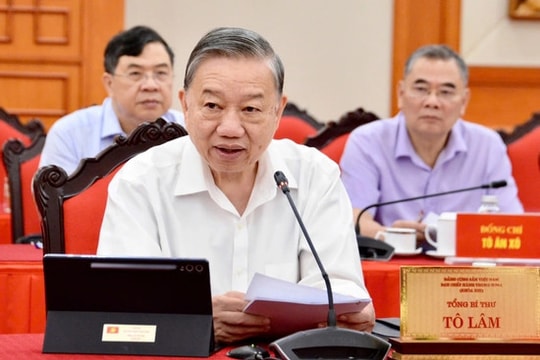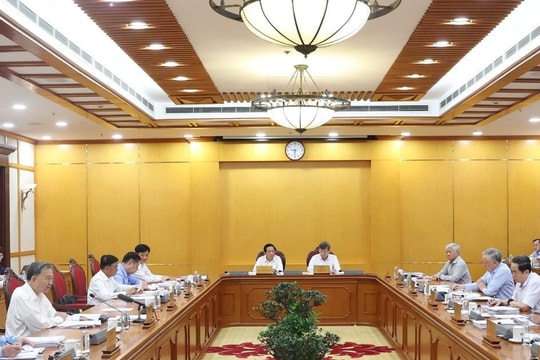Paying employees to quit: Is it really an initiative?
Many people consider this an initiative, but will it eliminate the cadres who go to work with an umbrella in the morning and come home with an umbrella in the afternoon?
The information that the Department of Home Affairs of Da Nang proposed a policy to support old cadres and those who retire early with a maximum support of 200 million VND depending on the position and working time is receiving public attention. Many people consider this an initiative to encourage those who are unable to work to voluntarily resign. But from another perspective, this initiative may reflect the reality that many agencies are "helpless", not knowing how to handle cadres who "go to work with an umbrella in the morning and come back with an umbrella in the afternoon". Firing them is not possible, but keeping them will slow down the apparatus.
|
| Paying for officials to quit: Can we eliminate those officials who go to work with an umbrella in the morning and come home with an umbrella in the afternoon? Photo: KT |
Civil servants who do not do their jobs not only make the State budget support them, but also a part of these officials are the "most active" factor causing harassment to businesses and people, reducing the competitiveness of the business environment in the eyes of investors. Therefore, the maximum subsidy of 200 million VND for a person who retires early seems high, but if considered in many aspects, it is still cheap compared to maintaining these officials.
However, there are still concerns. Firstly, how many cadres, civil servants and leaders are willing to receive an additional support of up to 200 million VND to voluntarily retire? Because in reality, in many agencies and units, there are cadres who are about to "land", they do not do anything, but still receive sky-high salaries and allowances. These are also "floating" amounts of money, internal and external funds, or collected from "tricks" to harass people and businesses to earn more money, which is not uncommon. Now, do they dare to accept early retirement to receive a maximum subsidy of 200 million VND?
Second, suppose that if Da Nang successfully implements this policy, meaning that many officials feel that they are no longer capable, resign early, and give up their seats to those who can do the job, how many localities can apply Da Nang's approach when the budget is not abundant; many places still ask for subsidies from the Central Government for both salaries and bonuses of civil servants.
And thirdly, this "initiative" in some ways also reflects the inability of many agencies and units to handle incompetent officials.
Not only in Da Nang, but also in the capital Hanoi, there are many examples proving this reality. At a recent meeting of the City Party Committee, Mr. To Quang Phan - General Director of Hanoi Radio and Television Station said that in his unit, out of 500 staff, nearly 140 are key staff. 60% of civil servants are competent, the remaining 40% are weak staff. And 40% of those weak staff "cannot be eliminated because they are the children of this or that person from the Central down to the city". In addition, they do not violate discipline even though their work is mediocre, "just go in and out, do not argue with anyone, do not curse anyone, so it is very difficult to fire them".
Looking at localities across the country, almost every locality, ministry, and unit complains that they have officials who are not able to do their jobs, but cannot be fired due to the mechanism and history left behind. The result is that after each call for streamlining the payroll, the apparatus becomes bloated again.
To eliminate incompetent cadres, strong solutions are needed from each organization and unit instead of complaining and blaming the mechanism and history. The Party's Resolutions on streamlining the apparatus are available, and there are also many regulations to tighten discipline and discipline for civil servants. Only by strictly implementing them can we eliminate these incompetent cadres.
In the annual evaluation and commenting of civil servants, it is necessary to specifically evaluate each criterion and each work, instead of qualitatively voting. Everything must be done publicly, fairly and objectively, with a mechanism for cross-checking and monitoring between departments. Civil servants who are evaluated for completing their tasks must be demonstrated by work results, quantifying each criterion, and demonstrating by products, not "completing work" by the "love and hate" of colleagues and leaders.
Regarding the recruitment mechanism: Openly compete for job positions instead of "recruiting through relationships and money". The higher the level of the cadre, the more he must set an example of saying no to "planting and entrusting" calls and handwritten letters to subordinate units to recruit his children./.



.jpg)





